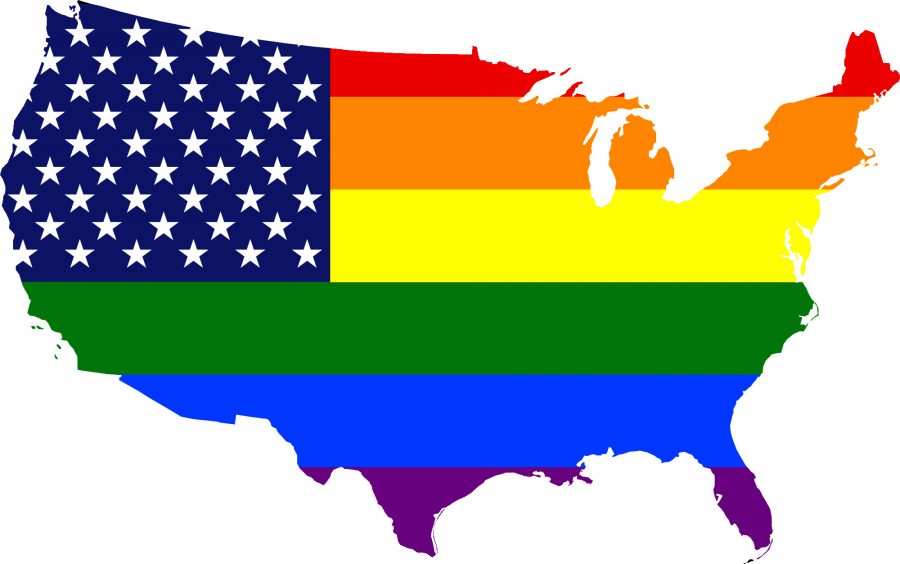An audience of approximately 20 students and faculty attended a panel discussing the state of LGBTQ+ rights and progress on Thursday evening in the Ferguson Center.
The third annual State of the Queer Union panel was held by the UA Feminist Caucus, a student organization dedicated to intersectional feminist issues. The panel assessed where the LGBTQ+ movement has been, where it is and where it is going. Panelists answered questions from moderator Kendall Wilson, UA Feminist Caucus vice president.
Defining the term queer opened the discussion.
“To me, queer just means I don’t fit in anywhere and this is the word I use,” said Carly Calhoun, panelist and JD candidate in the UA School of Law.
The panel then went on to discuss the gaining of marriage equality and its effects on public perception of the LGBTQ+ community. Panelists were asked to answer whether or not they believed there was a change in public perception after the Supreme Court ruled in favor of the right for same-sex couples to be married.
“Has [gaining marriage equality] helped? Yes,” said Panelist Ben Ray, M.A. candidate in the Gender and Race Studies Programs, “but how much? It depends on who you are and what kind of life you lived before.”
Gaining marriage equality has not solved all of the problems faced by the LGBTQ+ community. Ray expressed how he feels the decision is seen by some people.
“There is a delusion with marriage equality: ‘Now they have it, so why are they still complaining,” Ray said.
The conversation shifted to the stigmas and misconceptions surrounding the different identities under the LGBTQ+ umbrella.
“People mix up sexual orientation and gender identity,” said panelist Daroneshia Duncan, transgender rights and health advocate.
Duncan went on to explain the oppression and stigma surrounding transgender women and their relation to sex work and drug use. She said transgender women are more likely to earn less than $10,000 per year.
“Who can live off of $10,000 dollars,” Duncan said. “We’re forced to do these things because of the society we live in.”
After the panel, audience members expressed the need for understanding within the LGBTQ+ community.
“It solidified just how important it was for us to stick together within the community,” said Julia Gale, a freshman majoring in accounting. “It’s so important for us not to be knocking each other down because we can only get so far without one another.”
Olivia Cannon, a freshman majoring in chemical engineering, found the event to be educational.
“Even I, a member of the community, learned something new from that panel,” Cannon said. “It just shows that anyone can find something to take away from events like these.”









